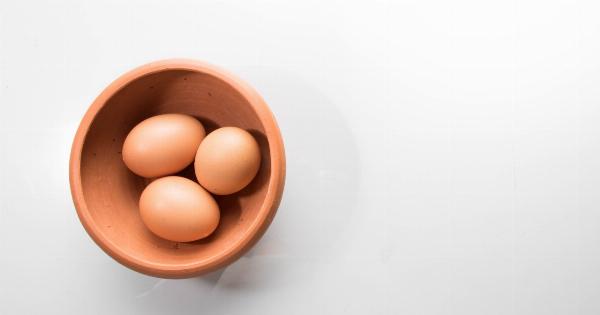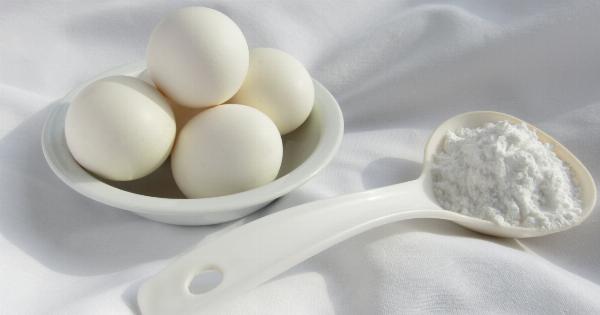When it comes to cooking with eggs, freshness is key. But how can you tell if your eggs are still good? Here are some tips to help you determine the freshness of your eggs:.
1. Check the Sell-By Date
One of the easiest ways to determine the freshness of your eggs is to check the sell-by date. This date is typically printed on the carton and can give you a good idea of when the eggs were packaged.
While some eggs may still be fresh after the sell-by date has passed, it’s generally a good idea to use them up within a week or two to ensure that they’re still good.
2. Perform a Float Test
If you don’t have the sell-by date to go on, you can perform a simple float test to see if your eggs are still fresh.
To do this, fill a bowl with cold water and gently place the egg in the water. If the egg sinks to the bottom and lays flat on its side, it’s very fresh. If it sinks but stands up on one end, it’s still good but not as fresh.
If the egg floats to the surface, it’s no longer fresh and should be discarded.
3. Check the Yolk and White
If you crack the egg open and the yolk is firm and sits up high, the egg is still fresh. If the yolk is flat and the white is runny, the egg is no longer fresh.
However, just because an egg’s yolk is flat doesn’t necessarily mean it’s gone bad. Eggs that are slightly past their prime can still be used in baking or cooking.
4. Smell the Egg
If you’re still unsure about the freshness of your egg, you can try giving it a sniff. Fresh eggs should have no odor, while eggs that have gone bad will have a sulfuric, rotten smell.
5. Check for Cracks
Eggs with cracks or broken shells are more likely to be contaminated with bacteria, so it’s important to inspect your eggs for any cracks before using them.
If you do find a cracked egg, it’s best to discard it rather than risk getting sick from consuming it.
6. Store Your Eggs Properly
One of the best ways to ensure the freshness of your eggs is to store them properly. Eggs should be kept in the refrigerator at a temperature between 33 and 40 degrees Fahrenheit.
When storing your eggs, it’s important to keep them in their original carton to protect them from moisture and odors.
Never store your eggs in the refrigerator door, as this area tends to experience more fluctuations in temperature and can affect the eggs’ freshness.
7. Use Your Eggs Soon After Buying Them
The longer your eggs sit unused in your refrigerator, the greater the chance that they will lose their freshness. To ensure that your eggs are still fresh, try to use them up within a week or two of purchasing them.
If you have a lot of eggs that you won’t be able to use up in time, consider freezing them. Eggs can be frozen for up to six months and can still be used in baking and cooking.
Conclusion
Eggs are a versatile and nutritious ingredient that can be used in a variety of dishes. By following these tips, you can ensure that your eggs are still fresh and safe to consume.































